School achievement: Why summer matters
Introduction The “summer learning effect” is where students’ school literacy achievement plateaus or declines over summer. This limits students’ levels of achievement over time which can create a barrier to decile 1 schools’ effectiveness. It is a well known effect both within New Zealand and worldwide, but there is limited research evidence on how to […]
Connecting curriculum; connecting learning; negotiation and the arts
Introduction This project contributes to the field of curriculum integration and the role of the arts within integrated learning contexts. In particular, it scrutinised integrated inquiries that incorporated drama and visual art with other learning areas. It also examined ways in which children, teachers, and the wider community engaged in arts-based integration. Most of the […]
Children who learn in more than one language: Early childhood teachers afloat in plurilingual seas
Introduction Background, research literature overview, research questions and why they are important to learning and teaching in New Zealand Aotearoa is an increasingly diverse society. The many languages and cultures of children and families raise questions and considerations for early childhood teachers. We designed research to address gaps in our knowledge, by exploring the languages […]
Extending innovative e-learning leadership
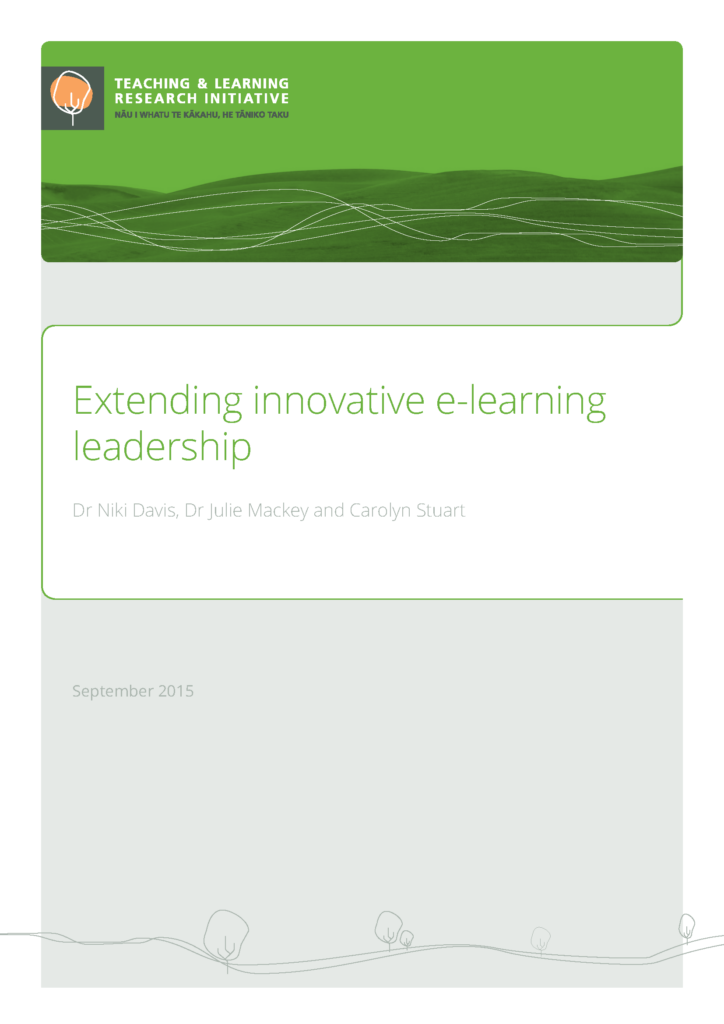
Introduction / research aims / rationale This project grew out of the desire to understand and share the strategies that successful school leaders use to identify, implement and integrate digital technologies in school settings. What may come naturally to some leaders presents significant challenges for others; the catalyst for this project was the opportunity to […]
Smoothing the path to transition
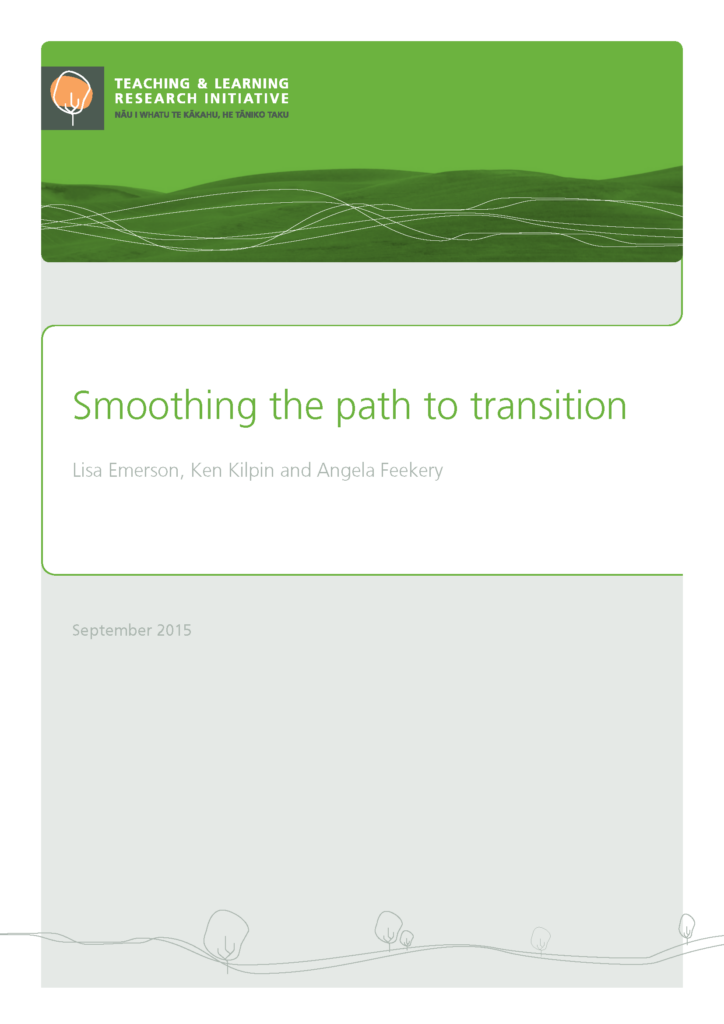
1. Introduction Successful transition of secondary school students into tertiary study is a priority for secondary schools, tertiary institutions and government alike (see, for example, Bazerman, 2007; Batholomae, 2005). The National Certificate of Educational Achievement (NCEA) has, as one of its goals, the effective preparation of senior secondary students for higher education; the Tertiary Education […]
Titiro Whakamuri, Hoki Whakamua. We are the future, the present and the past: Caring for self, others and the environment in early years’ teaching and learning
1. Aims, objectives and research questions Drawing from both kaupapa Māori and Western perspectives, this study has focused on global issues of ecological sustainability in a variety of local/national early childhood education contexts. It has aimed to contribute to an emerging body of research which illuminates, documents and integrates possibilities for early childhood education pedagogies […]
Designing knowledge building communities in secondary schools
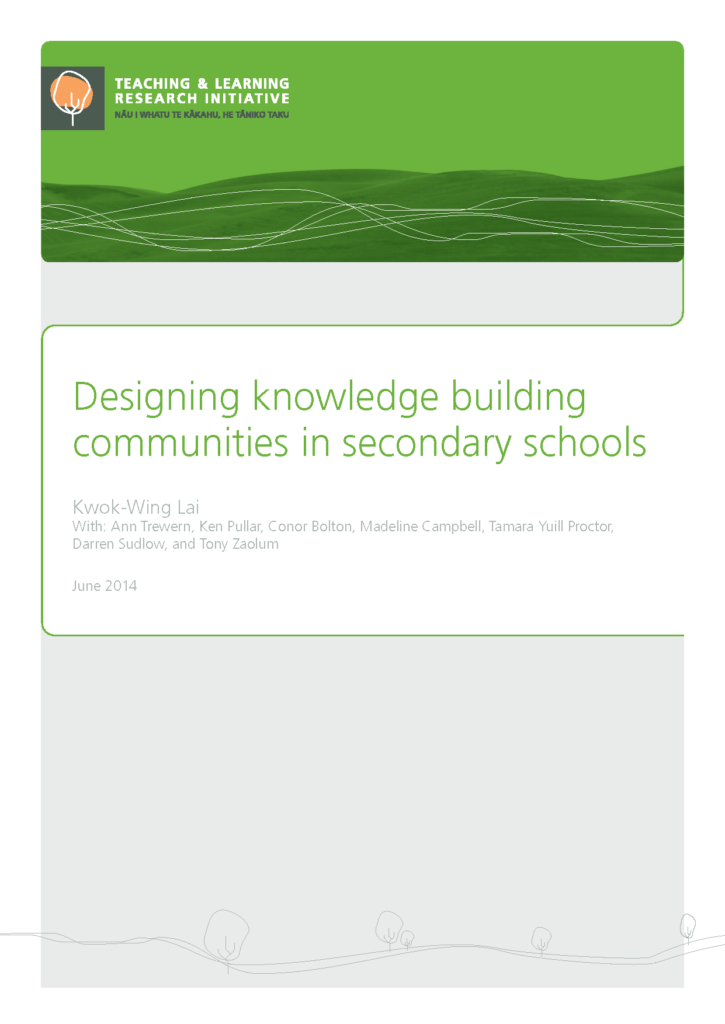
Introduction With the emergence of globalisation and the knowledge economy, it has become a priority for economically advanced countries to increase and democratise the innovative capacity of their citizens. In New Zealand, there is an urgent need to develop young people’s capacity to work creatively and innovatively with knowledge (Ministry of Education, 2007). This presents […]
Summer reading to overcome the summer effect
Introduction The school in which this project took place, Papatoetoe Central, was concerned about research evidence that indicated students’ reading achievement dropped after long summer breaks. This drop in achievement, known as “the summer effect”, has been reported in schools in New Zealand and internationally (Alexander, Entwisle, & Olson, 2007; Allington & McGill-Franzen, 2010; McNaughton, […]
Moving a school: Higher order thinking through SOLO and e-Learning
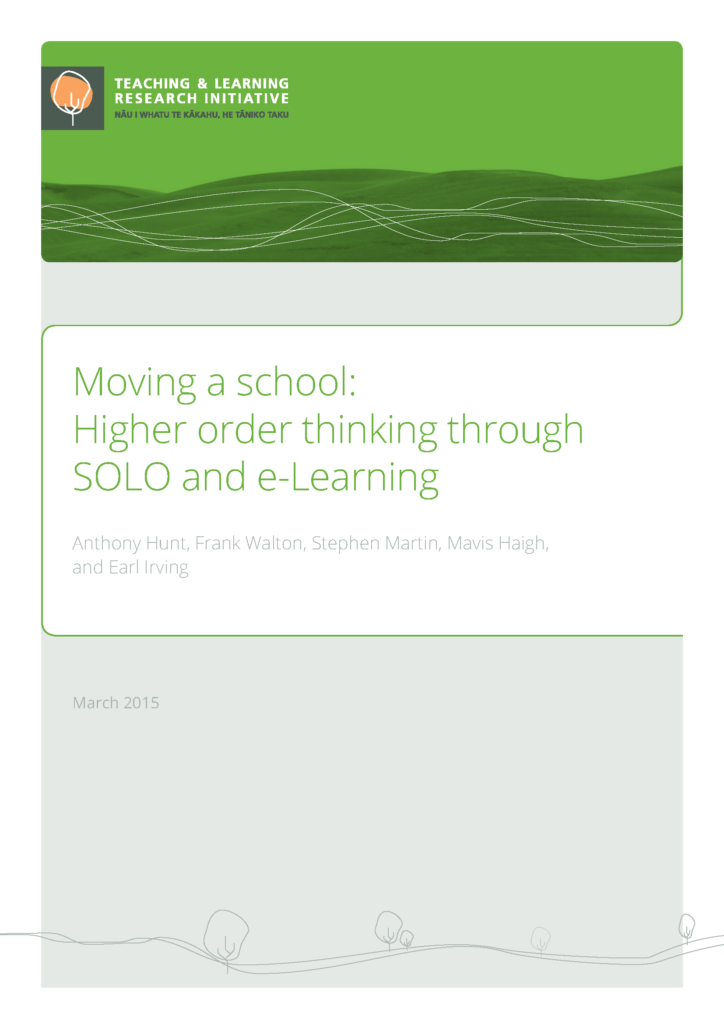
Introduction Technological, social and economic change is encouraging increasing emphasis on the development of higher order thinking skills throughout the world and they are being incorporated into national curriculum goals in many countries, including New Zealand. Simultaneously the use of digital technologies is being promoted by many educators and authorities in this country and elsewhere […]
Key competencies: How school guidance counsellors contribute to student learning
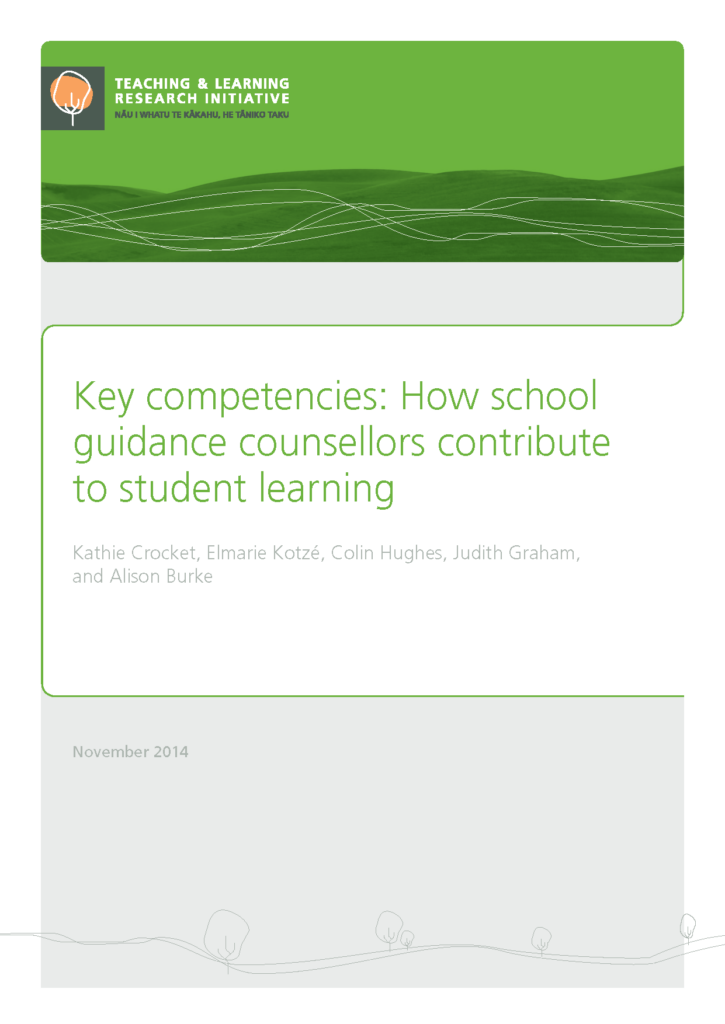
Introduction The project summarised in this report demonstrates how counsellors effectively facilitate learning in the course of attending to student wellbeing. students seek counselling to deal with problems, concerns, and struggles. In responding to student distress, school counsellors call on a repertoire of specialist therapeutic practices. many of these practices facilitate learning. This study shows […]
The impact of children’s everyday learning on teaching and learning in classrooms and across schools
Tū mātātoa, kei kiriora tō tū[1] Stand strong lest you become complacent A child in this study told us that he had learned he was brave by travelling on a Halloween train journey that engendered fear and trepidation. Months later, this child asked a researcher that his teacher be told he was ‘the brave one’. […]
Preparing initial primary and early childhood teacher education students to use assessment
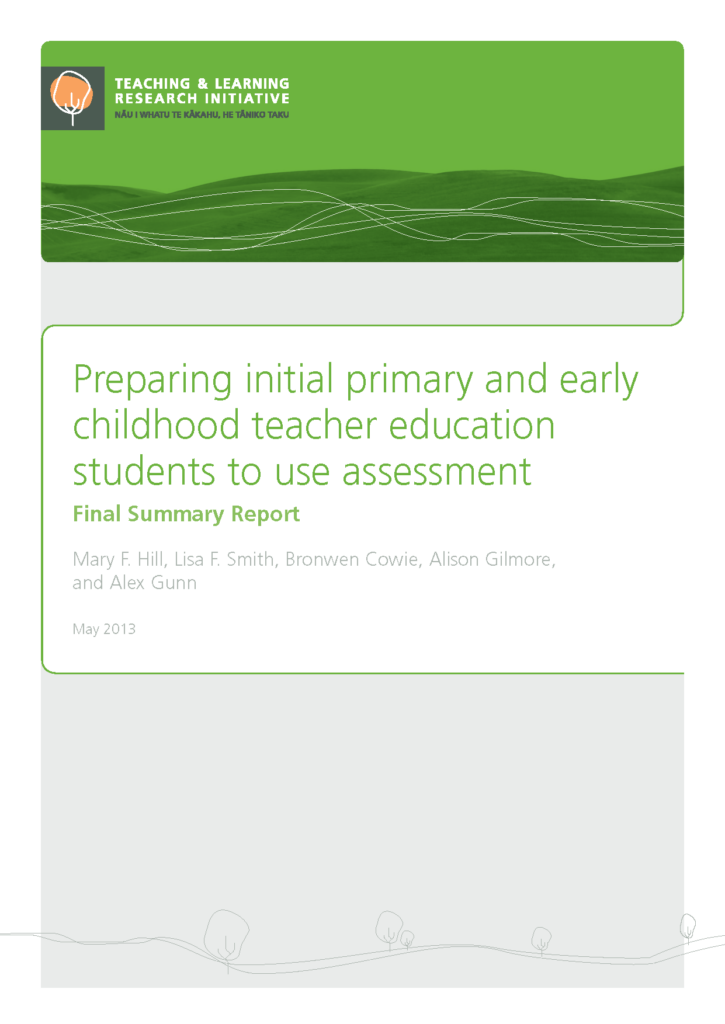
Introduction In our rapidly changing world, in which the future is uncertain, teachers need to prepare children with knowledge, skills, values, and competencies that will support them to become life-long learners and active contributors to New Zealand’s social, cultural, economic, and environmental well-being. Such an aim implies that children should be educated in ways that […]
Active adult participation in early childhood education: Enhancing child learning and community wellness
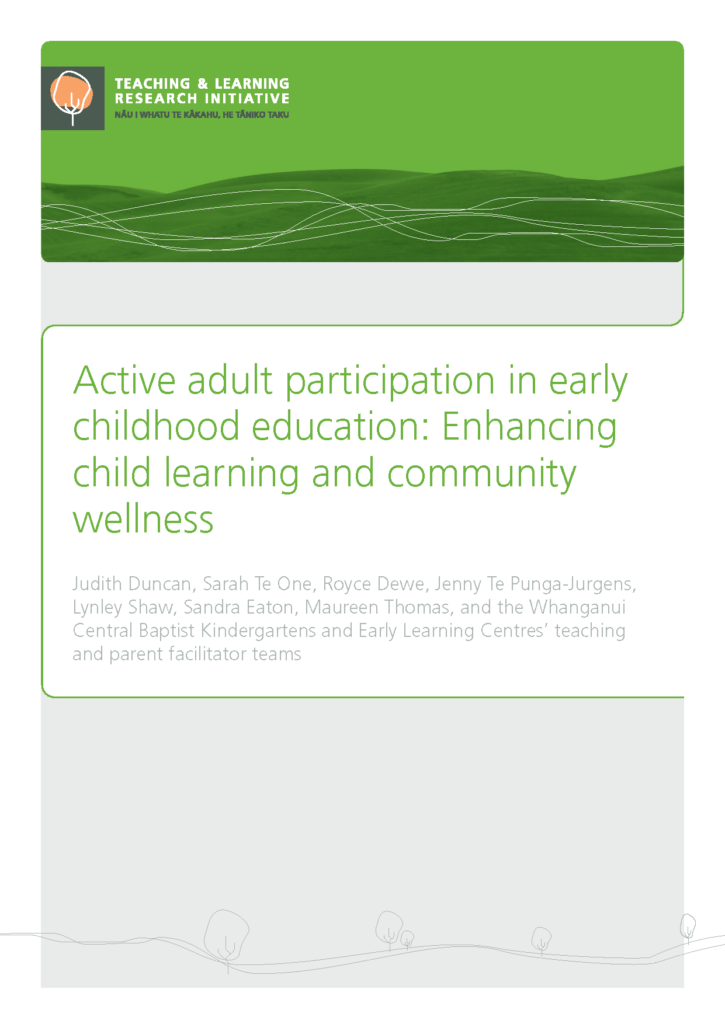
Introduction In our qualitative research project (2010–2012), the team investigated how “ordinary” early childhood centres enacted “extraordinary” pedagogy by including families, wider whānau and communities in the “everyday” of early childhood programmes; that is, within this project, we explored both theoretical constructs and teaching and organisational strategies to increase parent participation and positive learning outcomes […]
School is out: Students’ experiences of non-traditional learning
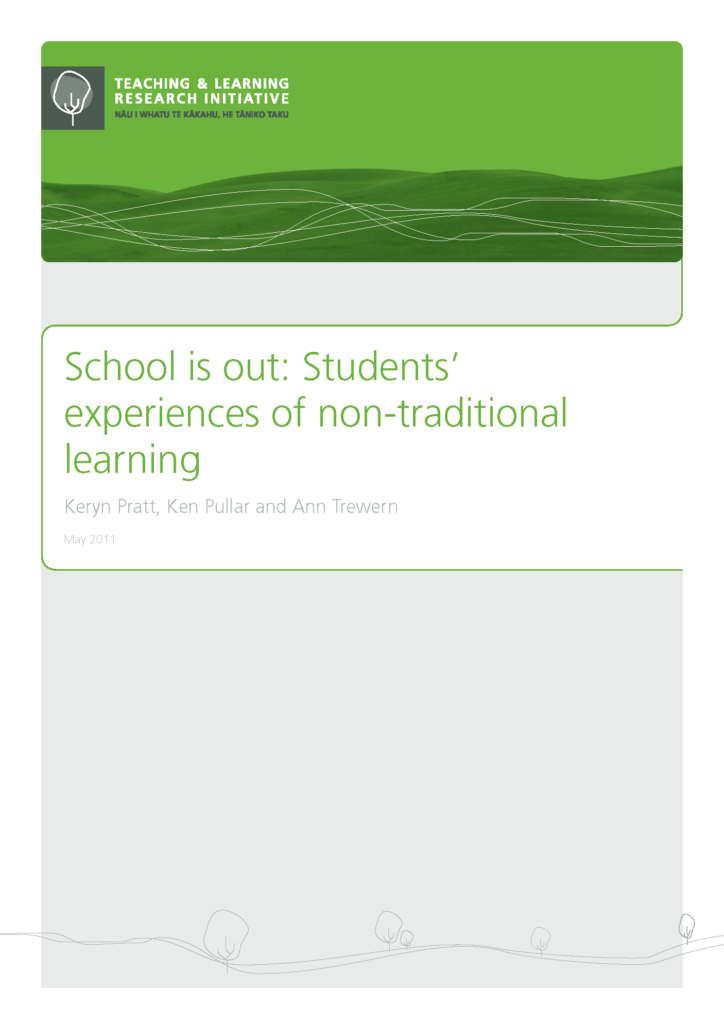
Introduction The experience of New Zealand school students is increasingly changing. In addition to their traditional schools students are participating in virtual classrooms and other forms of learning, such as classes through the correspondence School and vocational programmes. This study aims to extend previous research by looking at the experience of students in one regional […]
Riariakina ō rongo hirikapo – From kōhanga reo to kura
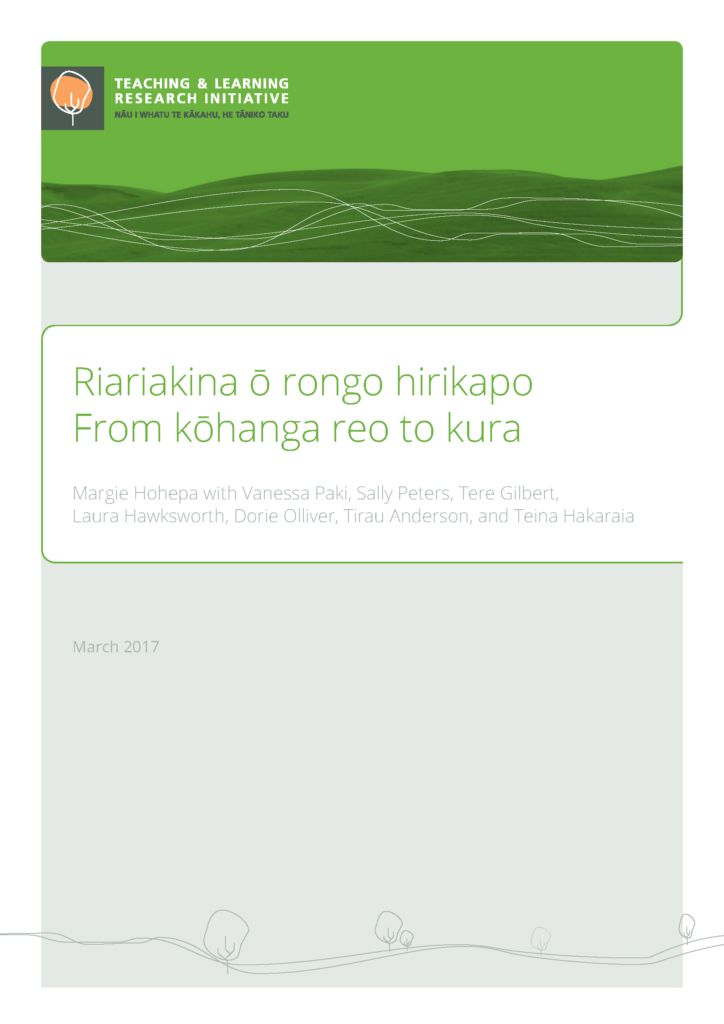
Introduction Ko te kaupapa tonu, ko te whakatupu i te mahara o te hirikapo kia tiu ai ki te muri, arā, kia puta he whakaaro i pokepokengia nō roto tonu i ngā whakahekenga kāwai o ngā tūpuna o te tamaiti, kua maranga te wā e kaumātua haere ana te tamaiti, ngōna kanohi kua huaki, ngōna […]
Understand Me: Storied-Conversations as Afa for Strengthening Relationships, Curriculum and Pedagogies
Mā ngā korero tuku iho tātou me ō tātou ao e kitea ai, e rongongia ai, e whaiora ai.[1] E tatou te fauina i tatou ma a tatou si’osi’omaga, e ala iā tatou tala.[2] We craft ourselves and our worlds in stories. Understand Me was born out of an aspirational exploration of ways for teachers […]
Beyond play: Learning through science investigation
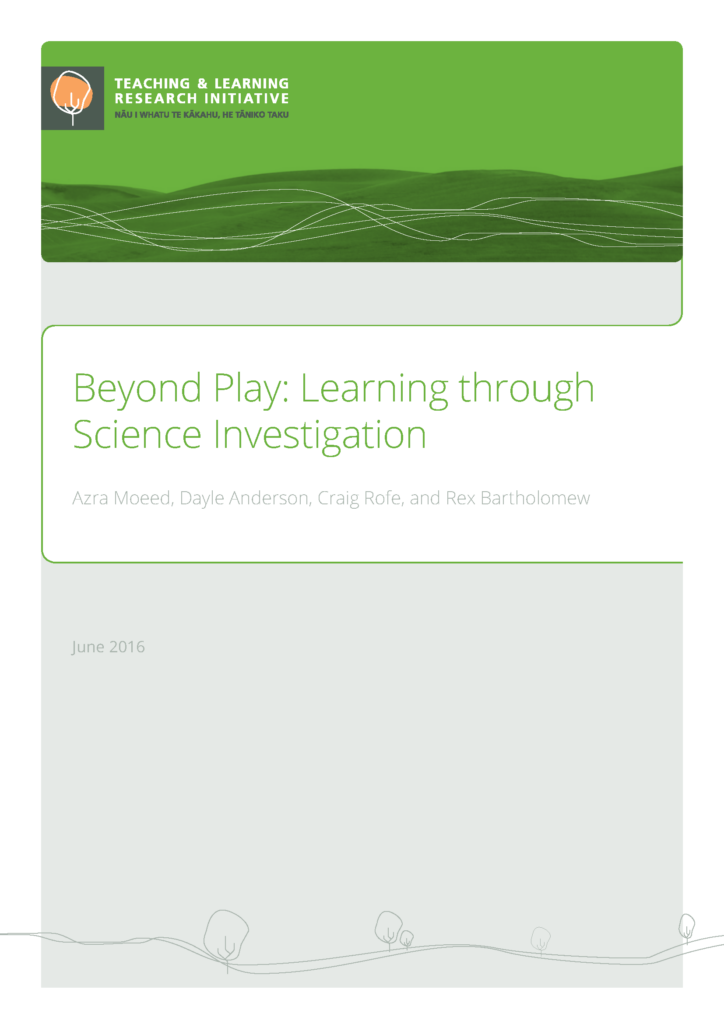
Acknowledgements We would like to thank the Teaching and Learning Research Initiative for providing the funding for this project and Dr Rose Hipkins for her support as our monitor. We are grateful for the guidance from Professor Robin Millar who gave us his thoughts, time, and the confidence to take on this project. Our sincere […]
Te Whatu Kete Matauranga: Weaving Māori and Pasifika infant and toddler theory and practice in early childhood education
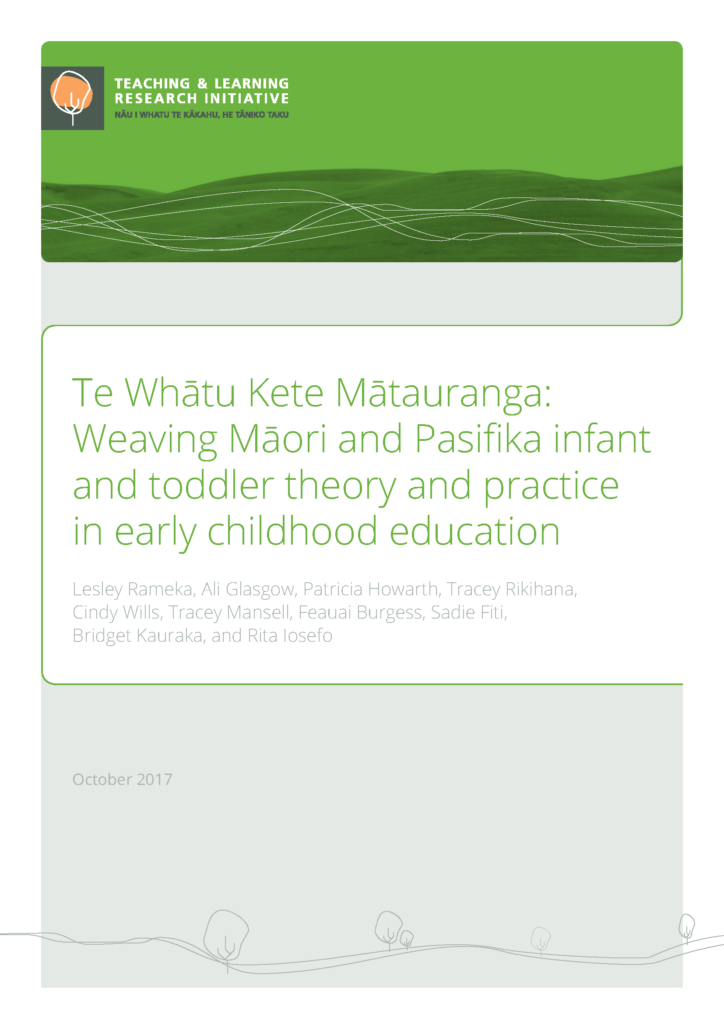
Introduction Early childhood education has an important role in building strong learning foundations to enable young children to develop as competent and confident learners. The need for more work on how early childhood education can better support Māori and Pasifika children to reach their potential is highlighted in findings from the Education Review Office (ERO) […]
Talking about text: Changing patterns of discourse in low-decile secondary classrooms
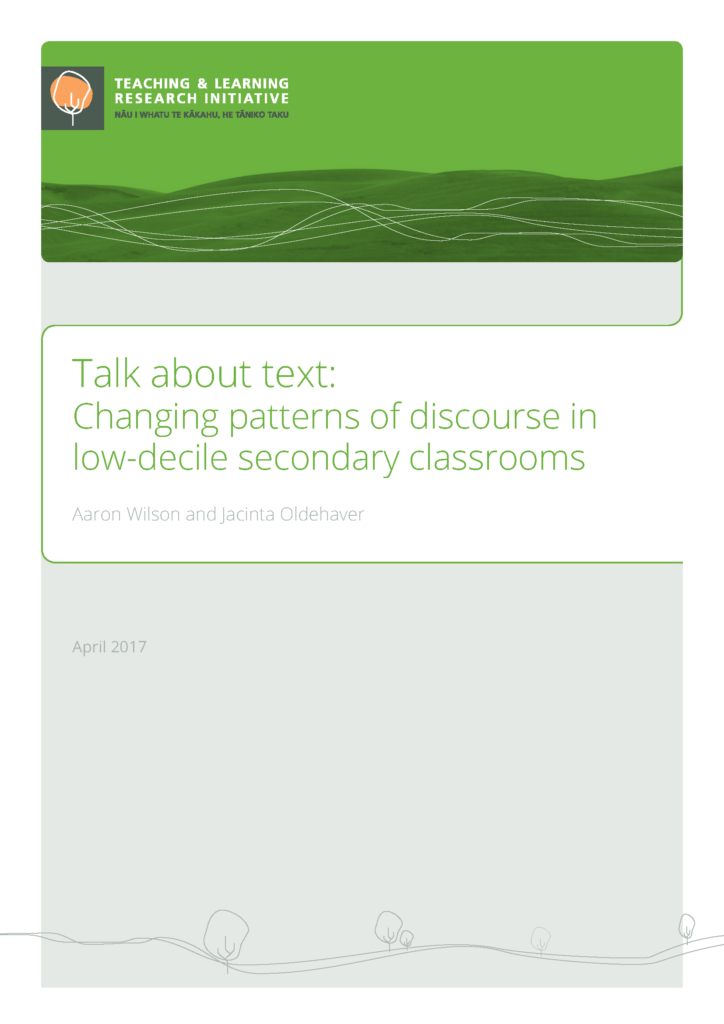
Introduction The aim of this study was to partner with six teachers to investigate and improve patterns of talk about text (TaT) in their subject-specialised classrooms. The teachers worked in two high schools in Auckland, one decile 1 and one decile 2, and taught biology, chemistry, English, health, or physical education to Year 12 or Year […]
Creating active citizens: Interpreting, implementing and assessing ‘personal social action’ in NCEA social studies
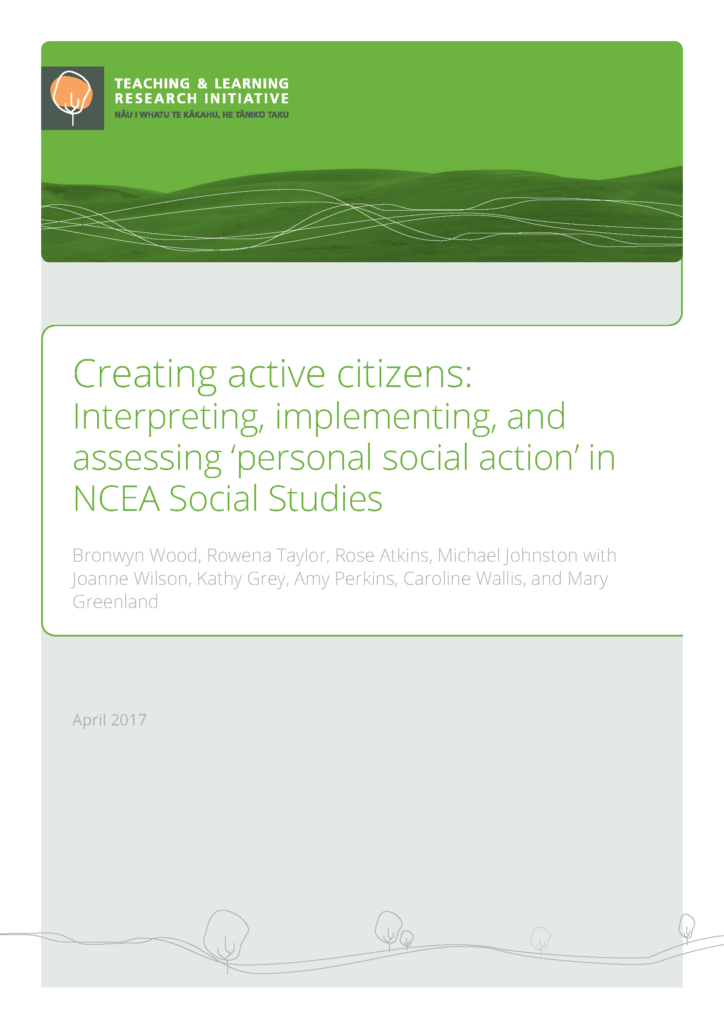
Introduction Since 2013, one internally-assessed Social Studies achievement standard at each of the three levels of the National Certificate of Educational Achievement (NCEA) has required students to actively participate in a social action. Whilst these new personal social action[1] standards hold the potential to support transformative citizenship education, previous research suggests that taking social action […]
